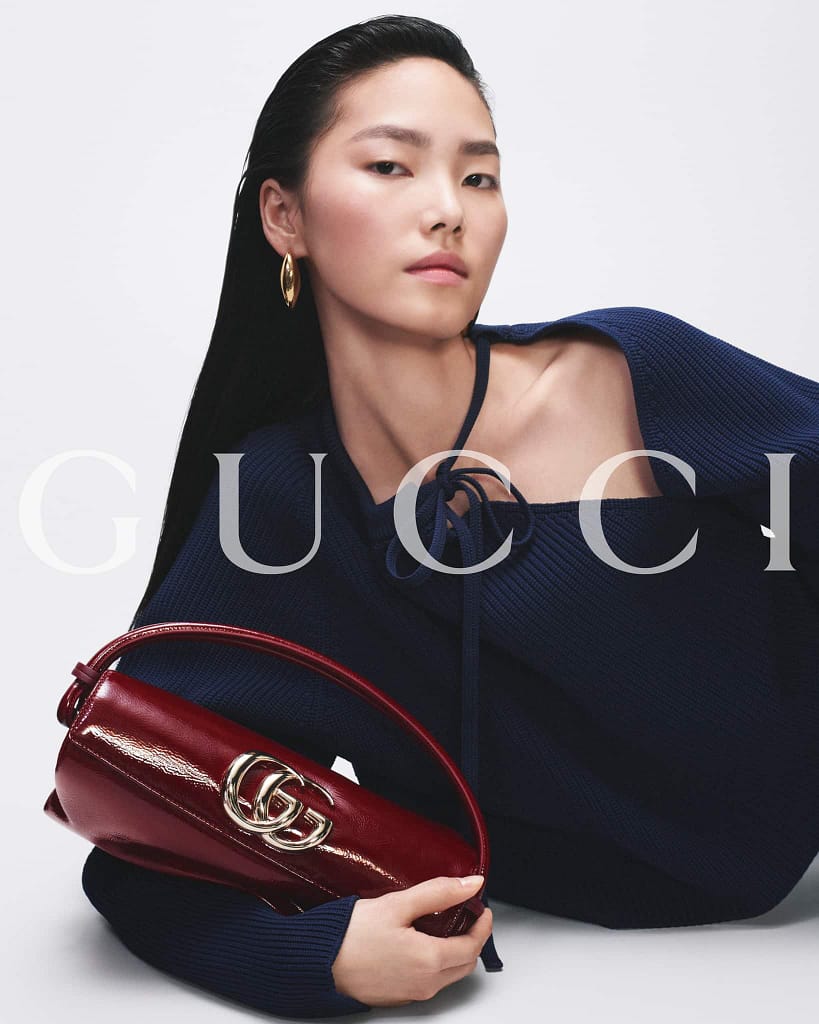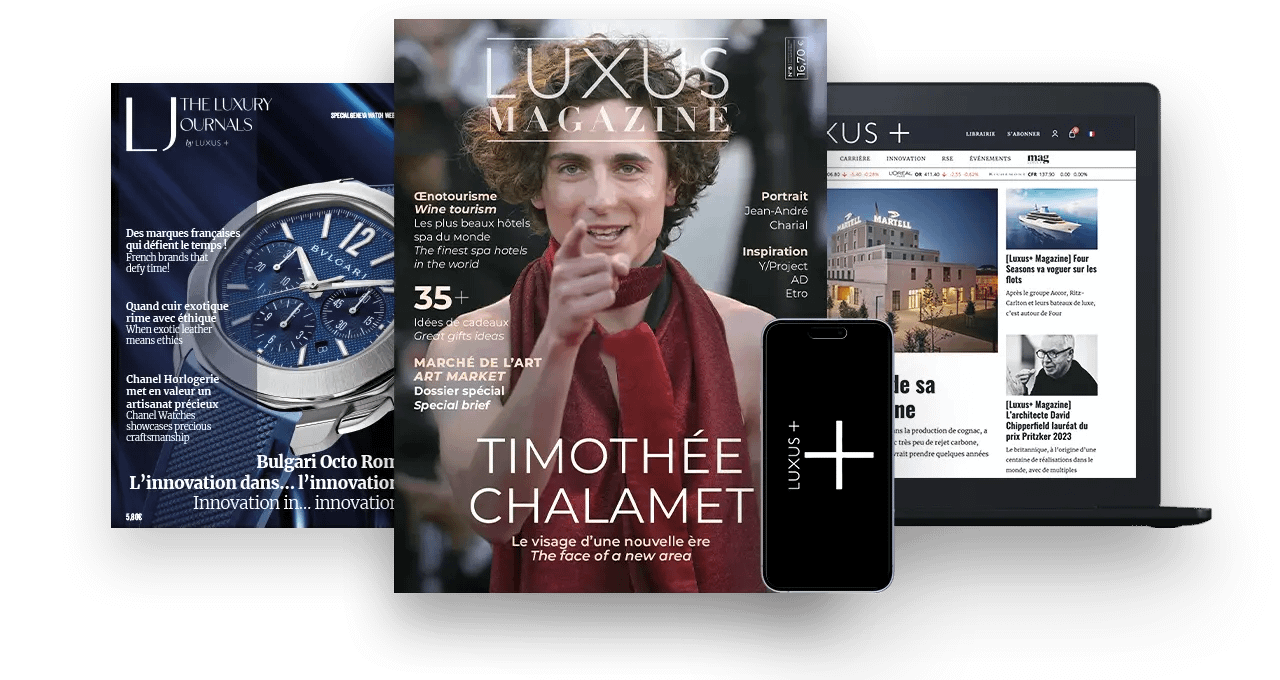Plagued by Gucci and the Chinese market, Kering posted another sharp decline in third-quarter sales and sharply revised down its annual operating profit forecasts. Hermès, on the other hand, continued its fine momentum from July to September.
The contrast is striking: while Kering has just announced, on the evening of October 23, results in free fall for the third quarter, Hermès lifted the veil, the following day, on a still dynamic activity between July and September…
Sales for the group headed by François-Henri Pinault, which was weighed down by its flagship Gucci and the Chinese market, fell by 15% on a reported basis and 16% on a comparable basis to €3.8 billion in the third quarter of 2024. This is still less than the 12% decline (on a comparable basis) expected by analysts.
But the fall in its operating income recurring in 2024 is likely to be even more problematic. “Following the sharper-than-expected slowdown seen in the third quarter”, and “given the high level of uncertainty surrounding the evolution of consumer demand for luxury goods over the coming months”, Kering warned, via its press release, that its operating income recurring for the 2024 financial year “could be in the region of 2.5 billion euros”. This is almost half the figure for 2023 (4.7 billion euros), which was itself down on 2022 (5.589 billion euros).
And it would mean that second-half operating profit would fall by 50% to 1 billion euros.
Hermès in good shape
For its part, Hermès presented a very different picture for its third quarter. Its sales continued to “grow” (+11% at constant exchange rates and +10% at current exchange rates) to 3.7 billion euros.
“All regions reported growth, despite a particularly high basis for comparison in Europe and Asia-Pacific. This is also the case for all its divisions, with the exception of Watches.
Over the first nine months, consolidated sales rose by +14% at constant exchange rates (11% at current exchange rates) to 11.2 billion euros.
Axel Dumas, managing director of Hermès, congratulated “all our employees” on this “robust third-quarter performance”, and thanked our customers for their loyalty.” “Strengthened by the singularity of its model, Hermès continues to recruit and invest for the long term.” In September, the saddler opened its twenty-third leather goods factory in Riom, in the Puy-de-Dôme region of France.
Meanwhile, at Kering, CEO François-Henri Pinault explained that his group was implementing “with discipline and determination” “aprofound transformation” of its “group and particularly at Gucci, at a time when the entire Luxury Goods sector is facing unfavorable market conditions”. “Our performance has been significantly affected in the short term”, he noted.
A hint of hope for Gucci
In more detail, Kering was particularly affected by the continuing poor health of its flagship House, Gucci.
In the third quarter, sales plunged by -26% on a reported basis (-25% on a comparable basis) to 1.6 billion euros.
Sales in the directly-operated network fell by 25% on a comparable basis, with “the House particularly impacted by market conditions, especially in Asia Pacific”.
The fall in wholesale sales was even more spectacular (-38% on a like-for-like basis), which Kering explained as “due to the strategy of rationalizing this distribution channel and the difficult market context”.

Kering did, however, sound a number of hopeful notes.
Armelle Poulou, Kering’s CFO, explained to the press that the new offer marked by an “aesthetic turnaround”, conceived by Sabato de Sarno, the new artistic director since the beginning of 2023, was “ very well received” by the existing customer base. Armelle Poulou admitted, however, that “the challenge” was “to continue to intensify the recruitment of new customers”, but that this was “also linked to the economic context and the drop in traffic”.
The Kering press release emphasized that “the renewal of the Leather Goods category, with the introduction of numerous new products at the end of the quarter”, was “well under way”.
According to Armelle Poulou, Gucci has also beefed up its communications, with, for example, its latest campaign highlighting its very luxurious Blondie handbag and the House’s heritage.
Finally, in early OctoberGucci announced the appointment of Stefano Cantino as General Manager. Already Deputy Director, he will replace Jean-François Palus, a close associate of François-Henri Pinault, at the beginning of 2025.
By the end of the year, the organization chart will be further enriched with”new senior executives to head communications ”, according to Armelle Poulou.
Bottega Veneta and Kering Eyewear, the two exceptions
With the exception of Bottega Veneta, Kering’s other Houses also performed poorly in the third quarter.
At Bottega Veneta, sales rose by +4% as reported (+5% on a comparable basis) to 397 million euros, boosted in particular by its Leather Goods and directly-operated network (+9% on a comparable basis), buoyed by double-digit growth in North America and Western Europe. Wholesale activity, however, declined by 10% on a comparable basis.
By contrast, Yves Saint Laurent sales fell by 13% on a reported basis (-12% on a comparable basis) to 670 million euros, with its wholesale channel itself down 20% on a comparable basis.
To regain momentum, the House is planning a number of leather goods launches between now and the end of the year.
The Other Houses were also dragged down in the third quarter (-15% on a reported basis and -14% on a comparable basis to 686 million euros), also weighed down by Wholesale, down 28% on a comparable basis. However, Balenciaga ‘s leather goods lines recorded “very good performances”, while the second show underAlexander McQueen ‘s new identity was “very enthusiastically received” and“Brioni continues to grow”. The performance of the Jewelry Houses was “resilient”.
Still modest and recent, the Kering Eyewear and Corporate division stood out with revenues up 32% on a reported basis to 440 million euros. On a like-for-like basis, however , growth was limited to +4%, as the segment “also includes Kering Beauté’s business, which was boosted by a significant contribution from Creed”.
Significant slowdown in Japan
Geographically, Kering reports “trends by region”, which are “deteriorating compared to the second quarter, particularly in Asia-Pacific and Japan, which is experiencing a significant slowdown”.
Activity in North America and Western Europe is contrasted according to the Houses.
According to François-Henri Pinault, the Group’s “absolute priority” now “is to create the conditions for a return to healthy, sustainable growth, while further strengthening the control of” its “costs and the selectivity of” its “investments”. “We have the strategy, the organization and the talent to achieve these objectives,” he said.
Hermès still in good shape
Read also > Kering: persistent difficulties at Gucci and a second profit warning for the luxury group
Featured photo : © Kering






































